Citation:
Guo, Y. ; Li, Y. ; Han, H. ; Yan, H. *; Zhao, D. *. All-Polymer Solar Cells with Perylenediimide Polymer Acceptors. Chinese J. Polym. Sci. 2017, 35, 293-301.
摘要:
Four polymers based on perylenediimide co-polymerized with thiophene, bithiophene, selenophone and thieno[3,2-b]thiophene were investigated as the acceptor materials in all-polymer solar cells. Two different donor polymers, poly[4,8-bis(5-(2-ethylhexyl)thiophen-2-yl)benzo[1,2-b;4,5-b']dithiophene-2,6-diyl-alt-(4-(2-ethylhexyl)-3-fluorothieno[3,4-b]thiophene)-2-carboxylate-2,6-diyl] (PTB7-Th) and poly[(5,6-difluoro-2,1,3-benzothiadiazol-4,7-diyl)-alt-(3,3aEuro '-di(2-dodecyltetradecyl)-2,2';5',2aEuro(3);5aEuro(3),2aEuro '-quaterthiophen-5,5aEuro '-diyl)] (PffBT4T-2DT), with suitably complementary absorption spectra and energy levels were applied and examined. Among all different donor-acceptor pairs studied here, the combination of PTB7-Th:poly[N,N'-bis(1-hexylheptyl)-3,4,9,10-perylenediimide-1,6/1,7-diyl-alt-2,5-thiophene] (PDI-Th) exhibited the best power conversion efficiency (PCE) of 5.13%, with open-circuit voltage (Voc) = 0.79 V, short-circuit current density (J (sc) = 12.35 mA center dot cm(-2) and fill-factor (FF) = 0.52. The polymer of PDI-Th acceptor used here had a regio-irregular backbone, conveniently prepared from a mixture of 1,6- and 1,7-dibromo-PDI. It is also noteworthy that neither additive nor post-treatment is required for obtaining such a cell performance.See also: 2017
